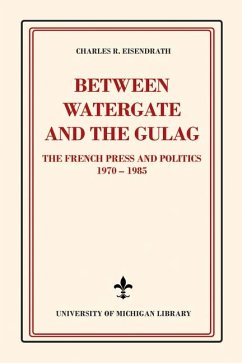This book analyzes the relationship of the French press to political power. The bedrock concept of "innocent until proven guilty" is reversed for French journalists in libel cases; they enter courtrooms presumed guilty. Royal holdovers live on: Louis XIV'S system of indirect control through revocable favors persists in the form of state financial aid to the press. The weekly Le Canard Enchaîné is a journalistic court jester that plays the same role as the fops at Versailles, telling truth to power in joke form on topics that "serious" journals avoid. Also introduced: "surplus freedom" a novel approach for gauging self-censorship by comparing the degree of free expression a legal system permits to what publications actually exercise.








